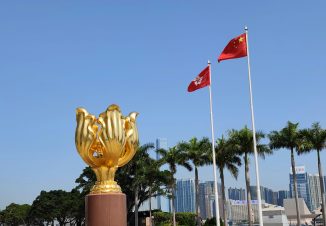
Work-hours arrangements are one of the most important aspects of employment law, particularly in relation to attendance, rest and overtime compensation. Regulations in mainland China, Hong Kong and Singapore vary significantly.
General Work Hours
In mainland China, laws concerning work hours are mainly included in the Labour Law and supplementary regulations. There are three types of regulations: the default standard system; the comprehensive system of calculating work hours on a weekly, monthly, quarterly or annual basis; and the flexible system. Work-time limits under the standard system are no more than eight hours a day and 40 hours a week. Implementation of the comprehensive system or the flexible system, however, is limited to certain positions and subject to prior approval from the labour authority.
The Hong Kong Employment Ordinance (Cap. 57), or EO, provides some basic rules regarding rest days and specifying work hours in an employment contract for employees working under continuous contracts (i.e., employees who work at least 18 hours a week for a period of four weeks), but otherwise there are very limited work-hours laws in Hong Kong. The Minimum Wage Ordinance governs the minimum payment for hours worked (currently HKD 34.50, or about USD 4.40 per hour). It does not apply to live-in domestic workers, student interns or work-experience students.
In Singapore, work hour regulations are governed by the Singapore Employment Act (EA) and apply to a limited category of employees protected under the EA, called ‘protected employees.’ Protected employees are not required to work more than six consecutive hours without a break, more than eight hours per day or more than 44 hours per week. There are, however, provisos to this general rule to accommodate specific requirements of the job (e.g., when the work must be continuous) or when there is an agreement with the employee, which is also subject to certain limitations.
Rest
Under the standard and comprehensive systems, Chinese law requires employers to provide at least one rest day per week for employees. Under the standard system, it is common practice to designate the weekend as the weekly rest days. Work time under the flexible system is not fixed, though an employer must still ensure its employees have reasonable time to rest.
In Hong Kong, employees working under continuous contracts are entitled to one rest day of at least 24 hours every seven days. It is an offense for an employer to fail to provide rest days or to force an employee to work on a rest day, with a maximum penalty of HKD 50,000, or about USD 6,374, for either offense. There is no legislation on daily rest or meal breaks; however, the government has published a nonbinding guide on this, and it is common practice for employees to be permitted a one-hour lunch break in most industries. Doing so helps fulfil employers’ obligation under the Occupational Safety and Health Ordinance to ensure the safety and health of employees at work.
Every protected employee in Singapore is allowed one rest day each week without pay, which is usually a Sunday or a day determined by the employer. There are some exceptions that allow the employer to substitute the rest day.
Maximum Work Hours and Overtime
In mainland China, overtime work under the standard system must not exceed three hours per day and 36 hours per month, and for the comprehensive system, the average overtime work during the calculation period must not exceed 36 hours per month. Overtime compensation is calculated on an hourly basis. Under the standard system, this is 150 percent of the basic rate on regular working days, 200 percent on rest days if compensatory time off cannot be arranged, and 300 percent on statutory holidays. In the comprehensive system, if the total work hours during a calculation period exceeds those for the same period under the standard system, compensation is also paid at 150 percent of the basic rate on regular working days and 300 percent on statutory holidays. In the flexible system, most cities do not request overtime payment, although some request 300 percent of the basic rate on statutory holidays.
There is currently no legislation in Hong Kong governing maximum work hours, other than for children (ages 13 to 15) and young people (ages 15 to 18). Children are not permitted to work during school hours, more than two hours on a school day, more than four hours on a day other than a school day, or more than eight hours on a day during the summer holidays. Young people are not allowed to work more than eight hours a day or 48 hours a week in industrial work. After every five hours of work, children must also be given a break of at least one hour.
Pursuant to the EO, an employment contract must state the hours that an employee will normally be required to work, but there is no provision requiring employers to compensate employees who work additional hours. Overtime may, however, be provided for contractually. The Hong Kong government is expected to introduce legislation later this year that will require employment contracts for low-income employees (workers who earn less than HKD 11,000, or USD 1,403, per month) to include a provision for overtime payments, the amount of which will be agreed to by both parties.
In Singapore, there are also situations allowing employers to require protected employees to work beyond the stipulated limits (e.g., if their work is essential for defense or security, or when urgent work to machinery or plants is needed), but the overarching provision is that a protected employee cannot work more than 72 hours’ overtime a month. Overtime pay is generally 1.5 times an employee’s hourly basic rate of pay, except in certain situations when the provisos apply. Protected employees are not compelled to work on a rest day unless they are engaged in work that, due to its nature, requires a continuous succession of shifts. If the protected employee is required or requests to work on his or her rest day, then he or she shall be entitled to enhanced pay, depending on the number of hours worked on that day.
Reprinted with permission from SHRM.org. c 2018. All rights reserved.


